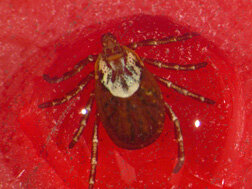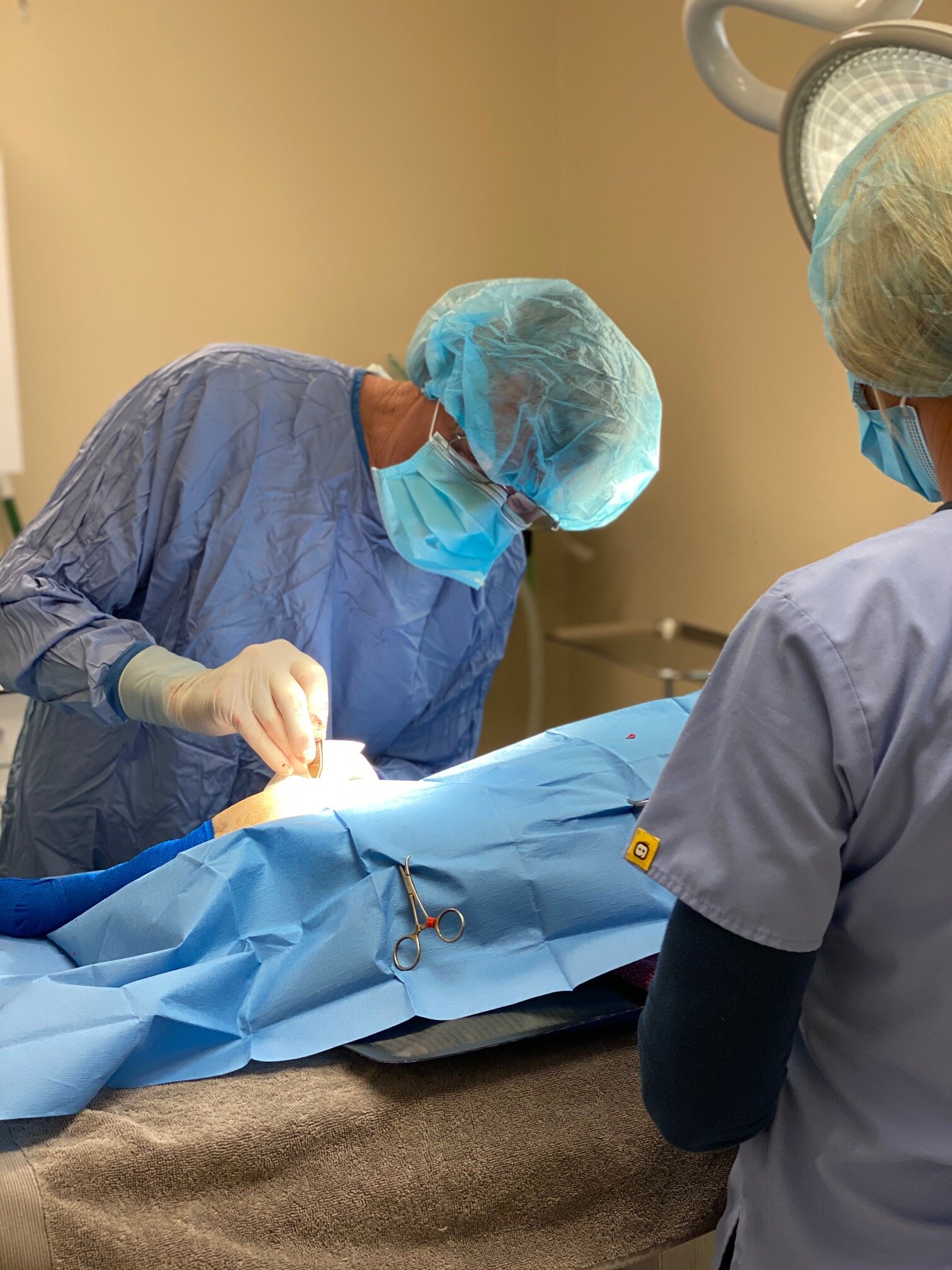Our Services
Prevention and Treatment
Puppy and Kitten Wellness Care
Our puppy/kitten wellness program is designed to help get your pet started on the right path to a long and healthy life. The first few months are a critical period in development, and we can give you the support and tools necessary to help him or her grow into a healthy pet
Schedule your puppy/kitten for his or her first exam as soon as possible. Until they receive a complete series of vaccines, they are susceptible to many serious but preventable diseases. We can help with behavior and any house training questions.
We will make sure your new puppy is protected against rabies, distemper, and parvovirus, among other diseases. Your puppy will also need to be tested and treated for parasites, which are extremely common in young dogs. We will get your new puppy started on heartworm and flea and tick prevention.
We will make sure your new kitten is protected against rabies and panleukopenia (distemper). Depending on your cat’s risk, we may also advise vaccinating him or her against other diseases, such as feline leukemia virus (FeLV). In addition, your kitten will need to be tested and treated for parasites, which are common in young cats. We will get your kitten started on flea and parasite prevention.
Many puppies and kittens have roundworms, hookworms or coccidia infection. We will run a fecal test at your first visit. It is important for puppies and kittens to be tested and treated for these infections, not only to rid them of the infection but also to prevent you and the rest of your family from becoming infected. Roundworms and hookworms are a potential zoonotic parasite, which means they can be transmitted from pets to people. By ensuring that your pet is properly treated, you can keep your entire family safe from these and other parasites.
Adult Pet Wellness Care
Bringing your pet in for an annual diagnostic and wellness checkup can help reassure you that your dog or cat is healthy or help us detect hidden diseases or conditions early. Early detection can improve the prognosis of many diseases, keep medical costs down, and help your pet live longer. Many dogs and cats are good at hiding signs that something is wrong, so subtle changes in their health or behavior might be easy to overlook. And, depending on the disease, some pets don’t show any symptoms.
Dogs and cats age far quicker than humans, so it is even more crucial for our companion animals to receive regular exams. In addition, the risks of arthritis, cancer, diabetes, heart disease, hormone disorders, and kidney and liver problems all increase with age.
During your pet’s wellness exam, we will perform a physical assessment, checking your dog or cat from nose to tail. We will also make sure your pet receives appropriate vaccinations and preventives. We will perform a diagnostic workup, which may include blood, fecal, and urine tests to check for parasites and underlying diseases. We may also recommend that your pet receive dental care. When your pet is nearing his or her senior years, we will recommend a baseline exam and diagnostic workup so we’ll know what’s normal for your pet. This will enable us to keep track of any changes.During your pet’s wellness exam, we will perform a physical assessment, checking your dog or cat from nose to tail. We will also make sure your pet receives appropriate vaccinations and preventives. We will perform a diagnostic workup, which may include blood, fecal, and urine tests to check for parasites and underlying diseases. We may also recommend that your pet receive dental care. When your pet is nearing his or her senior years, we will recommend a baseline exam and diagnostic workup so we’ll know what’s normal for your pet. This will enable us to keep track of any changes.
Because you spend the most time with your pet, you can be your pet’s greatest advocate. Please let us know if you’ve noticed any physical or behavioral changes in your pet, as well as any other concerns you might have.
Senior Pet Care and End of Life Care
As dogs and cats get older, they need more attention and special care. Our senior wellness program can help your pet remain fit and healthy as he or she ages and help us catch any potential problems earlier, when they’re easier to treat or manage. Regular veterinary exams can actually help your pet live longer, too!
Diagnosing diseases and certain conditions early is important throughout a pet’s life, but it becomes even more critical when your dog or cat enters his or her senior years. The risks of arthritis, cancer, diabetes, heart disease, hormone disorders, and kidney and liver problems all increase with age. In addition, dogs and cats may not show any signs of even serious diseases until they are quite advanced.
Senior status varies depending on your pet’s breed and size. Smaller dogs tend to live longer than larger dogs, and cats generally live longer than dogs. We can help you determine what life stage your pet is in.
Before your dog or cat reaches senior status, we recommend that you bring your pet in for a baseline exam and diagnostic workup. This will give us a record of what’s normal for your pet so we can keep track of any changes. In most cases, we suggest this checkup for when your dog turns 7 years of age or your cat turns 8 years of age. Thereafter, your senior pet will benefit from more frequent veterinary exams and diagnostic testing.
We can treat many symptoms that are commonly attributed to age, including those associated with cognitive dysfunction syndrome (similar to Alzheimer’s in humans). We can also improve your pet’s quality of life in many ways: by identifying and preventing or reducing pain, recommending an appropriate nutrition and exercise plan, and suggesting environmental modifications to keep your pet comfortable.
We can also help you monitor your pet’s quality of life and help with end of life care when the time comes.
Diagnostic Testing
We offer eye pressure (glaucoma testing) testing to help diagnosis and monitor treatment of glaucoma. We also can diagnosis hypertension by checking and monitoring your pet’s blood pressure. These are conditions that can be treated if diagnosed and can help improve your pets quality of life.
We often need to take x-rays to help diagnosis an illness or injury. Our radiographs (x-rays) are taken digitally and can be sent to a radiologist for consultation if needed.
Ultrasonography (ultrasound) is an non-invasive procedure that uses sound waves to examine a pet’s internal organs. It can be used to evaluates the animal’s heart, lungs, liver, gall bladder, kidney’s, bladder. Can help to detect fluid, cysts, and tumors. Interpretation of ultrasound images requires a great skill on the part of the clinician and sometimes we recommend referral to an internal medicine specialist for more advance imaging.
Full In-House Lab
We have state of the art in house diagnostic machines from IDEXX to help diagnosis and monitor your pet. We can check a CBC to monitor your pets red blood count, white blood cell count and platelet levels. A serum chemistry can check liver and kidney values, electrolytes and protein levels.
We can run thyroid testing in house to diagnosis an low or elevated thyroid level. We can test your pet’s clotting ability and monitor glucose levels.
We can also now monitor your pet’s SDMA level which can help detect kidney issues much earlier than traditional blood work.
Vaccines
Our veterinarians will discuss your pets risk for certain diseases and recommend a vaccine protocol specifically tailored to you pet. Once your pet is over 3 years of age some routine vaccines will be recommended every 3 years instead of annually. We believe in the proven efficacy and safety of vaccines and are happy to answer any questions you may have about vaccination.
Heartworm Prevention, Detection, and Treatment
Mosquitoes can transmit heartworm infection when they bite. And those heartworms can wreak havoc on your dog or cat. These parasites can severely and sometimes fatally damage the heart, lungs, and blood vessels. Some pets may not show any signs of infection; in those that do, symptoms can vary widely.
In dogs, signs of heartworm disease can range from coughing, fatigue, and weight loss to difficulty breathing and a swollen abdomen (caused by fluid accumulation from heart failure). Canine heartworm infection can also lead to a life-threatening complication called “caval syndrome” (a form of liver failure); without prompt surgical intervention, this condition usually causes death.
Although often thought to not be susceptible to heartworm infection, cats can indeed get heartworms. Cats can suffer from a syndrome referred to as heartworm-associated respiratory disease (HARD); the symptoms can be subtle and may mimic those of asthma or allergic bronchitis. Signs of respiratory distress, such as rapid or difficult breathing, wheezing, and panting, are common. Other symptoms include coughing, vomiting (typically unrelated to eating), and loss of appetite or weight. Heartworm infection is more difficult to diagnose in cats than it is in dogs.
Treatment for heartworm infection is far more expensive than prevention—and it is a 2-3 month long process. There is no approved treatment for cats. Some cats spontaneously rid themselves of the infection; others might not survive it. And even one or two adult heartworms in a cat can cause serious problems.
Fortunately, there’s an easy way to keep your dog or cat safe: by administering monthly heartworm preventives. Most heartworm medications also protect your pet against other parasites, such as roundworms, hookworms, whipworms, ear mites, fleas, and ticks. We can recommend the best regimen of prevention for your pet.
Flea and Tick Prevention
Fleas can cause problems for pets ranging from minor to life-threatening. Not only can these parasites cause severe itching, irritation, and allergies, but they can also transmit tapeworms and diseases. Fleas can infest dogs, cats, ferrets, mice, and rats. And fleas don’t just stay on pets; they can bite people, too.
You don’t want these blood-sucking parasites on your pet or in your home. We can help keep them away or help you get rid of them if they’ve already found their way inside. Call us to find out how to eliminate and control fleas or to start your pet on a preventive today. We have a number of oral and topical preventatives available in hospital and online to protect your pet.
Ticks are becoming more and more prevalent in North America, and they’re now being found in areas where people and pets didn’t previously encounter ticks. These parasites aren’t just a nuisance; they can cause serious—and sometimes deadly—diseases, including Lyme disease, Rocky Mountain spotted fever, babesiosis, ehrlichiosis, and tick paralysis. Contact us immediately if your pet starts coughing or has joint pain, trouble breathing, fever, weakness, or loss of appetite, weight, energy, or coordination.
The best method for keeping fleas and ticks off your pet is by keeping your dog or cat on a tick preventive. Even indoor-only pets are at risk because ticks can hitch a ride inside on your clothing or shoes. Flea and tick preventives are safe and highly effective at controlling ticks and the diseases they carry. Call us to get your pet protected today!
Don’t panic if you find a tick on your dog or cat, even if your pet is on a preventive. Some preventives kill ticks after they’ve come in contact with your pet. Ticks can hide easily under your pet’s fur, so as an added measure of protection, we recommend checking your pet for ticks every time your pet comes in from outside. And don’t hesitate to ask us any questions you might have.
Chronic and Acute Medical Conditions
Chiropractic Services
Cold Laser Therapy
We offer cold laser therapy to help the healing process. We can use it to accelerate wound healing and with soft tissue or orthopedic injuries. We offer several packages, most treatments require a series of visits to complete a course of therapy.
Prescription Diet Planning
Certain medical conditions may be manages or prevented by a prescription diet. For example diabetes, kidney disease, gastrointestinal or pancreatic disease, and certain skin conditions can benefit from a specific prescription diet. We have some diets available in hospital and a larger variety on our online pharmacy. Through our online pharmacy you can receive your pet’s food delivered directly to you house.
Dental Health
Digital Dental X-Rays on Every Dental Patient
Did you know that 60 % of the tooth lies below the gumline! The only way to evaluate the tooth root is to take intra-oral dental x-rays. We take dental x-rays on every dental patient and very often find things that would have been missed without the use of x-rays. Every patient that has a dental cleaning will have full mouth dental x-rays taken in order to provide the most thorough dental care for your pet.
Dental Cleaning and Therapy
Dental cleaning or dental therapy packages are based on the severity of disease. The packages include a full panel of bloodwork, pre and post-operative pain medication, anesthesia, monitoring during anesthesia and ultrasonic cleaning and polishing of the teeth. They also include full mouth dental x-rays and a complete oral examination. We examine your pet’s mouth at every exam and will make recommendations regarding your pet’s teeth based on that exam.
Seventy percent of dogs and cats have periodontal disease (infection of the gum tissue) by age 3, and this is one of the most important things an owner can do to maintain both oral health and overall health. By scheduling routine preventative cleaning we can help keep your pet as healthy as possible and prevent more serious issues later in life.
The bacteria in your pet’s mouth is release into the circulatory system and can travel through out your pet’s body affecting other organs such as the heart and kidneys. Recent studies in human and veterinary medicine have shown a correlation between oral and systemic diseases in people and animals.
Oral Surgery and Fracture Repair
If your pet suffers from a broken jaw, it may need surgery to stabilize it for proper healing. We often make use of special equipment to create intra-oral acrylic splints.
Surgical Extractions and Oral Surgery
We perform oral surgery to remove oral tumors, or surgically extract certain teeth. If a tooth is infected or fractured extraction may be recommended. A surgical extraction involves making a gingival (gum) flap, sectioning or splitting a multi rooted tooth into individual roots to be able to extract the tooth with less trauma. Once the tooth is extracted the gum flap will be sutured to make the pet more comfortable and speed up healing. Most extraction sites are healed within 5-7 days. Surgical extractions decrease the time to extract teeth and are less traumatic than previous methods and decrease the chance of any root tips being left behind.
Surgery
Spay/Neuter
Spaying and neutering your pet has many benefits. The procedure can help your dog or cat live a longer, healthier life. Spaying or neutering will not change your pet’s personality.
By spaying your female pet, you’re protecting her against potentially deadly diseases, including bacterial infections, reproductive tract diseases, and several types of cancer. If you spay your puppy before her first heat cycle you can decrease her risk of developing mammary cancer by 99%! You also won’t have to worry about her going into heat. This means avoiding the mess that often accompanies the heat cycle in female dogs and the pacing and crying that happens with female cats. In addition, spaying your pet will help control the dog and cat overpopulation problem, keeping more animals out of shelters.
Spaying, which involves removing the ovaries and uterus, and neutering which is the surgical removal of the testicles are surgical procedures and need to be performed with the pet under anesthesia. We continually monitor your pet’s vital signs with state of the are equipment to help ensure their safety. Please see the descriptions under Anesthesia and Patient Monitoring for more information on what we do to keep your pet safe.
Neutering your male pet also has many benefits. The procedure, which prevents male animals from reproducing, can help your dog or cat live a longer, healthier life. Neutering will not change your pet’s personality.
By neutering your pet, you’re reducing or eliminating his risk for testicular cancer and some types of prostate cancer, as well as sexually transmitted diseases. Neutering will also reduce or eliminate undesirable and embarrassing behavior, including roaming, fighting, humping, and spraying.
Spaying, which involves removing the ovaries and uterus, and neutering which is the surgical removal of the testicles are surgical procedures and need to be performed with the pet under anesthesia. We continually monitor your pet’s vital signs with state of the are equipment to help ensure their safety. Please see the descriptions under Anesthesia and Patient Monitoring for more information on what we do to keep your pet safe.
Soft Tissue Surgery (Bladder surgery, tumor removal, gastrointestinal surgery)
The most common type of bladder surgery is a cystotomy. We make a small incision into the bladder to remove a bladder stone. We then submit the stone for analysis to find out what type of minerals make up the stone so we can prevent it from happening again.
We may perform gastrointestinal surgery if your pet has eaten something that may be stuck in the stomach or intestines we have to go into the abdomen to remove the object. We also perform this type of surgery in cases of possible neoplasia or cancer, to remove spleens, or to treat gastric torsions.
Skin masses are a common issue in dogs and cats. Some tumors are benign while others may be malignant. It is always best to have any lump or bump on your pet looked at by your veterinarian to determine if it may need to be removed.
Orthopedic Surgery (including knee repair)
Cruciate ligament injuries in the knee are the most common canine orthopedic injury we see. There are several different types of surgery available and we can help decide which one is best for your pet. The luxating patella or knee cap is a common issue in smaller dogs and sometimes needs surgery to stabilize and prevent further pain and discomfort of your pet.
We also perform many types of orthopedic (bone) surgeries. Because we want to ensure that our patients receive the best possible outcome, we occasionally refer them to board-certified orthopedic surgeons to perform back surgery and other very complex surgeries.
Leg fractures are the most common orthopedic problem and often result from a mishap with an automobile. They can be treated in a variety of ways depending on the location and type of fracture. Most fractures will require surgical intervention:
“Pinning” stabilizes the fracture by inserting a long stainless steel rod into the middle of the bone across the fractured area.
“Plating” involves attaching a flat stainless steel plate to the bone using screws on either side of the fracture.
“External fixation” stabilizes fractures using a series of pins on the outside of the leg that pass through the skin and into the bone on either side of the fracture.
Surgical Monitoring and General Anesthesia
Increased anesthetic safety noted in the last 20 years is related to the increased vigilance and monitoring by Veterinarians and their staff. Anesthetic risk is quite low, estimated at 5 in 10,000 for healthy dogs, and 11 in 10,000 for healthy cats.
We employ the most up to date anesthetic protocols performed by certified licensed veterinary technicians, as well as electronic monitoring devices at our hospital to maximize your pet’s safety during an anesthetic procedure. Every surgery including dental therapies are monitored fully by a designated technician keeping track of oxygenation levels, an ECG, blood pressure, heart rate and utilizing capnography chich measures your pet’s carbon dioxide levels (how they are ventilating)
Pain Management - Surgery
We believe in addressing any potential pain an animal may have. As in human medicine, we have a variety of medications available to manage your pet’s pain both before and after surgery and in the event of trauma and due to other chronic medical issues. There are many options available to you and your pet under any of the above circumstances. All elective surgical procedures include pain medication before and after surgery and to go home.
Additional Diagnostics
Antech Referral Diagnostic Laboratory
One of the top diagnostic laboratories in the country, our partnership with Antech gives us another valuable resource to aid in prompt and accurate diagnosis of a wide range of conditions.
Imaging and Specialist Referrals
Our experienced team of veterinarians and veterinary technicians provides many services at our hospital, ranging from routine to advanced procedures. Although we handle the majority of your pet’s medical and surgical needs in-house, we occasionally refer patients to veterinary specialists or specialty clinics when advanced training or equipment will be beneficial.
Board-certified specialists, such as oncologists, ophthalmologists, and neurologists, have extensive experience and training in a particular area of veterinary medicine or surgery. Specialty clinics and university-affiliated referral centers have specialized equipment to perform procedures that are not routinely performed by general veterinary practitioners.
We make referral decisions because we want to ensure that our patients receive the highest standard of care and best possible outcome. Be assured that when we refer a patient to another hospital, we continue to stay involved with his or her care, consulting with the treating specialist and often providing any needed follow-up care and rehabilitation.




















